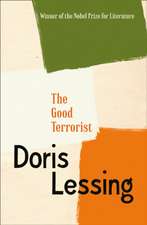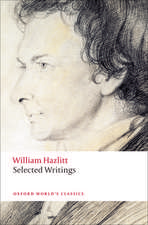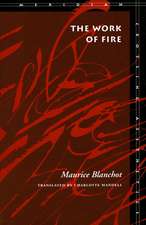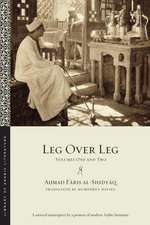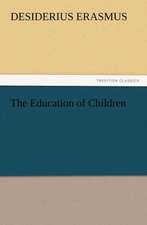The Praise of Folly
Autor Desiderius Erasmus Traducere de John Wilsonen Limba Engleză Paperback
| Toate formatele și edițiile | Preț | Express |
|---|---|---|
| Paperback (9) | 42.75 lei 3-5 săpt. | |
| CreateSpace Independent Publishing Platform – | 42.75 lei 3-5 săpt. | |
| Penguin Books – 24 noi 1993 | 52.62 lei 22-33 zile | +18.16 lei 6-12 zile |
| Alma Books COMMIS – 11 sep 2013 | 58.75 lei 3-5 săpt. | +14.00 lei 6-12 zile |
| CREATESPACE – | 59.15 lei 3-5 săpt. | |
| Globe Pequot Press – mai 1994 | 87.39 lei 3-5 săpt. | |
| ALPHA EDITION – 30 iun 2024 | 93.19 lei 3-5 săpt. | |
| Lector House – 9 mar 2020 | 58.44 lei 6-8 săpt. | |
| Echo Library – 30 iun 2009 | 66.40 lei 39-44 zile | |
| TREDITION CLASSICS – 31 oct 2011 | 130.35 lei 6-8 săpt. |
Preț: 59.15 lei
Nou
Puncte Express: 89
Preț estimativ în valută:
11.32€ • 11.80$ • 9.41£
11.32€ • 11.80$ • 9.41£
Carte disponibilă
Livrare economică 27 februarie-13 martie
Preluare comenzi: 021 569.72.76
Specificații
ISBN-13: 9781511558969
ISBN-10: 1511558962
Pagini: 86
Dimensiuni: 152 x 229 x 5 mm
Greutate: 0.13 kg
Editura: CREATESPACE
ISBN-10: 1511558962
Pagini: 86
Dimensiuni: 152 x 229 x 5 mm
Greutate: 0.13 kg
Editura: CREATESPACE
Notă biografică
Desiderius
Erasmus,
born
about
1469,
went
to
school
at
Gouda,
Utrecht
and
Deventer.
He
became
the
most
famous
humanist
of
the
Northern
Renaissance.
Erasmus
travelled
widely,
and
his
thought
was
particularly
influential
in
England,
where
he
became
a
close
friend
of
Thomas
More.
He
died
in
Basle
in
1536.
Betty Radice became joint editor of the Penguin Classics in 1964, and translated from the Latin, Greek and Italian. She was an honorary fellow of St Hilda's College, Oxford. She died in 1983.
A.H.T. Levi was Buchanan Professor of French Language and Literature at the University of St Andrews and has published extensively on the Renaissance.
Betty Radice became joint editor of the Penguin Classics in 1964, and translated from the Latin, Greek and Italian. She was an honorary fellow of St Hilda's College, Oxford. She died in 1983.
A.H.T. Levi was Buchanan Professor of French Language and Literature at the University of St Andrews and has published extensively on the Renaissance.
Cuprins
Praise of Folly Preface to the 1993 Edition
Introduction
1. The importance of the Praise of Folly
2. Erasmus, scholastics, humanists and reformers
3. The Praise of Folly, Dorp and the spirituality of Erasmus
Select Bibliography
Praise of Folly
Prefatory Letter
Moriae Encomium, that is, the Praise of Folly
Letter to Maarten Van Dorp, 1515
Index
Introduction
1. The importance of the Praise of Folly
2. Erasmus, scholastics, humanists and reformers
3. The Praise of Folly, Dorp and the spirituality of Erasmus
Select Bibliography
Praise of Folly
Prefatory Letter
Moriae Encomium, that is, the Praise of Folly
Letter to Maarten Van Dorp, 1515
Index
Descriere
Descriere de la o altă ediție sau format:
Erasmus ranges from light-hearted jibes to vehement denunciation of the theologians and churchmen, monastic life and the condition of the Church, and then seriously expounds the virtues of the Christian way of life. This work is one of the best satirical classics of the Renaissance.
Erasmus ranges from light-hearted jibes to vehement denunciation of the theologians and churchmen, monastic life and the condition of the Church, and then seriously expounds the virtues of the Christian way of life. This work is one of the best satirical classics of the Renaissance.
Recenzii
Erasmus searched for reconciliation between Faith and Reason, refusing not only the dogmas of Faith, but the dogmas of Reason as well.
Praise of Folly, still a masterpiece of slyly subversive wit, was in a sense the first best-seller, read covertly under desks and sniggered over by countless trainee monks and priests.
I am well aware that what I have had to say on the problem of peace is not essentially new. It is my profound conviction that the solution lies in our rejecting war for an ethical reason; namely, that war makes us guilty of the crime of inhumanity. Erasmus of Rotterdam and several others after him have already proclaimed this as the truth around which we should rally.
From the terrible hate storm of his age Erasmus has salvaged this intellectual gem, his faith in humanity, and on this small burning wick Spinoza, Lessing and Voltaire - and all Europeans past and present - could light their torch.
Praise of Folly, still a masterpiece of slyly subversive wit, was in a sense the first best-seller, read covertly under desks and sniggered over by countless trainee monks and priests.
I am well aware that what I have had to say on the problem of peace is not essentially new. It is my profound conviction that the solution lies in our rejecting war for an ethical reason; namely, that war makes us guilty of the crime of inhumanity. Erasmus of Rotterdam and several others after him have already proclaimed this as the truth around which we should rally.
From the terrible hate storm of his age Erasmus has salvaged this intellectual gem, his faith in humanity, and on this small burning wick Spinoza, Lessing and Voltaire - and all Europeans past and present - could light their torch.

